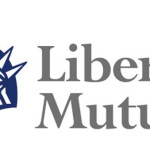A delivery driver in Massachusetts has filed a proposed class action against a grocery delivery company and grocery chain for allegedly misclassifying drivers as independent contractors and not paying minimum wage, overtime wages or employee expenses.
The lawsuit comes as there is new reporting that technology companies will renew their effort to get a gig worker classification and benefits proposal on the ballot in the state.
Thayer Sears has brought the claim against Cherish Productions, LLC, an Ohio-based firm doing business as Grocery Runners since 2015. The company employs delivery drivers in Massachusetts who are dispatched through a mobile phone application to deliver on behalf of retail stores to customers at their homes and businesses. The suit also names Roche Bros., a local retail grocery chain that utilizes the Grocery Runners platform.
Sears worked for Grocery Runners from December of 2022 to April of 2023.
The suit claims that under Massachusetts law, Grocery Runners must treat its drivers as employees, including paying minimum wage, overtime pay and certain expenses. However, the suit alleges, Grocery Runner pays runners either a flat rate of $200 per day or a set rate per delivery. The suit maintains that drivers often work 45 hours per week or more but do not receive any overtime pay for hours worked over 40 per week.
Because Grocery Runners classifies them as independent contractors, the drivers pay for certain job expenses “normally borne by employers,” including expenses for their vehicles, gas, phone, and data plan, according to the complaint.
In light of the expenses that Grocery Runners drivers bear in order to perform their jobs, drivers’ hourly wages sometimes fall below the Massachusetts minimum wage, the suit claims.
Grocery Runners issued weekly “invoices” that the suit claims do not accurately record the time worked by delivery drivers and show that the drivers did not receive full payment of customer tips.
Effective January 1, 2023, the minimum wage in Massachusetts is $15.00 per hour, while the minimum hourly rate for workers who provide services to customers and who make more than $20 a month in tips is $6.75.
The suit alleges violations of Massachusetts and federal labor laws and seeks certification of a class of drivers along with restitution of the alleged unpaid wages and tips, and damages.
Grocery Runners has not yet replied to a request for comment or answered the complaint, which was filed in federal district court on July 21.
Ballot Question
Transportation and delivery network companies including Uber, Lyft, DoorDash and Instacart were dealt a setback in the state last year when the state’s high court rejected their ballot proposals that sought to both cement their app-based drivers’ status as independent contractors and shield themselves from liability for lawsuits stemming from their workers’ actions.
Massachusetts High Court Nixes Gig Worker Ballot Measure Sought by Uber, Lyft
The Massachusetts Supreme Judicial Court ordered the two proposals removed from the November ballot on the grounds that they overreached in addressing two separate policy issues when state law requires subjects of a ballot referendum to be related. The court said the proposals not only fail the related subject test but also are presented in a way that could be confusing for voters.
The courier and rideshare companies’ proposal had promised they would provide a minimum level of compensation and benefits to app-based drivers without their employees being classified as employees, which would entitle them to a fuller menu of benefits and protections.
The battle is not over. Bloomberg reported last week that the Massachusetts Coalition for Independent Work, backed by tech giants, has announced it will try again to get a measure on gig worker classification on the 2024 ballot.
Topics Lawsuits Massachusetts
Was this article valuable?
Here are more articles you may enjoy.



 Finance Firms’ Return-to-Office Crackdown Could Backfire: Deloitte
Finance Firms’ Return-to-Office Crackdown Could Backfire: Deloitte  Maui Fire Is Deadliest in US in 105 Years, With 93 Killed
Maui Fire Is Deadliest in US in 105 Years, With 93 Killed  Liberty Mutual Posts Q2 Loss of $585M Driven By Catastrophes
Liberty Mutual Posts Q2 Loss of $585M Driven By Catastrophes  Kemper Exits Preferred Home and Auto Business Immediately
Kemper Exits Preferred Home and Auto Business Immediately 

